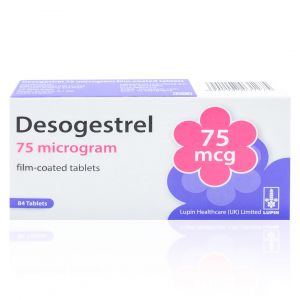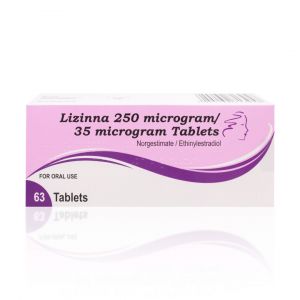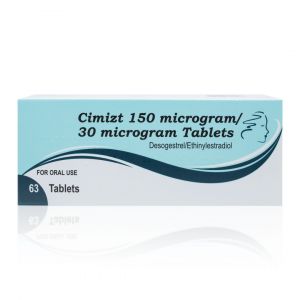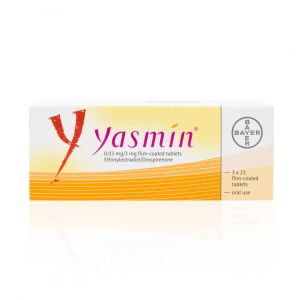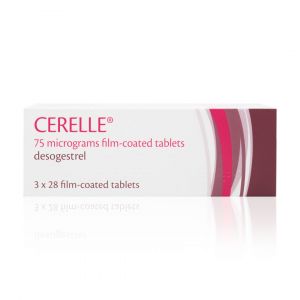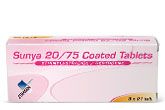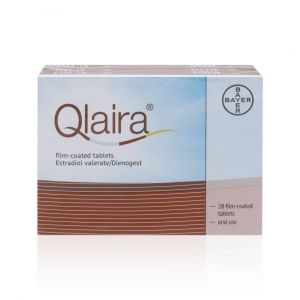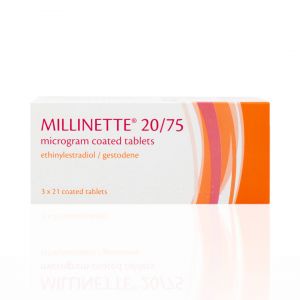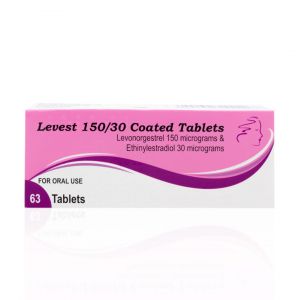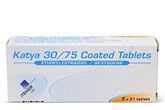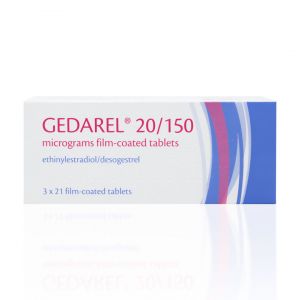Women choose to be on the contraceptive pill for a variety of reasons. Of course the most common is to prevent getting pregnant, but it may also be used as a way to control or manage irregular or painful periods. There are two main types of contraceptive pill: the mini pill (also known as the POP), and the combined pill. The combined pill is the more common of these two, and as you might expect, contains two hormones: a progestogen one and an oestrogen one. The POP (mini pill) contains only the progestogen hormone.
As the contraceptive pill has its effect by altering your hormones, then may be side-effects relating to your mood from taking this medication. Most women prefer to take the combined pill, as this includes a seven day break in which you get your period. This means you know when to expect to bleed. On the other hand, the minipill does not have this break, and may make some changes to your period. It may make your periods more or less regular or they may disappear completely. However, the minipill is suitable from more women as it contains only one hormone. Both types of contraceptive pills are available to buy online in the UK from the doctor such as Doctor-4-U.
Below are some common types of contraception. Please note, this is not an exhaustive list and other non-medical methods or lifestyle changes may be more suitable. If you would like to learn more about these options, then please click here. Before receiving medication you must answer a number of questions to asses your suitability. All questions are reviewed by a GMC registered doctor before a final decision is made. All medication is dispensed via a full regulated and registered UK pharmacy. All prices displayed on our site include the price of the medication and our doctors consultation fee.
Contraceptive Pill
What is contraception?
Contraception is any kind of physical or hormonal method you use to prevent pregnancy. There are dozens of types of contraception available, including physical barriers such as traditional condoms, the female condom and diaphragms and hormonal types of contraception such as The Pill, IUDs (Intrauterine devices, also known at “The Coil”), and hormonal patches and implants. Not all IUDs use hormones as part of their method of protection. There are also “natural” methods, with include withdrawal (the male pulling out before ejaculating) and only having sex at times of the month when the women is least likely to get pregnant. Be aware that these methods are far less reliable, though, although in some cultures they are the only ones which are allowed. There are also not reversible forms of contraception which are totally effective, such as getting a vasectomy.
The most widely used and safest form of contraception is the male condom. Not only does it prevent pregnancy, but it also protects you from getting STIs (sexually transmitted infections) as it is a physical barrier. However, condoms can rip and no kind of contraception is more than 99% effective even when used properly, so to have safer sex you should consider using a second form of contraception such as The Pill, which you can buy from Doctor-4-U.
How does the Pill work?
Like all types of hormonal contraception, the Pill has its effect by manipulating your hormones. It tricks your body into thinking it is already pregnant, preventing ovulation, and thickening the lining of the womb so the sperm cannot reach the egg.
Why choose The Pill?
As well as having the peace of mind of extra protection, there are many reasons why women choose to take the contraceptive pill. One rather straight forward reason is that it’s easy to remember and convenient - it doesn’t interrupt sex. Some people prefer to not use condoms as they feel it ruins the mood or spoils the moment, especially if you have difficulty finding one or putting one on. This is especially relevant if you are in a relationship and know yourself and your partner are free of STIs and you are only using protection to prevent pregnancy.
The Pill has more uses than just contraception. If you have irregular periods, or particularly heavy or painful periods, a pill with a seven day break may be useful to you as a way to regulate and manage your bleeding. However, heavy and painful bleeding can be a sign of a more serious condition such as endometriosis. Endometriosis is a painful illness where the lining that should be inside of your womb, grows outside of the womb. You should speak to your doctor if you believe you may have this. In many cases, people naturally have heavy and painful bleeding, which can limit your activity for a few days every month. Certain types of The Pill can help you to manage this. If your periods tend to be quite irregular, a pill with a 7 day break can help you to regulate them, which can make life easier for you.
What different kinds of pill are there?
There are two main types of contraceptive pill, but each has many variations. These two main types are the combined pill and the POP (progestogen only pill), sometimes knows as the mini pill.
The combined pill
As you might guess from the name, the combined pill contains two types of hormone, an oestrogen and a progestogen hormone. Combined pills generally have a 7 day break after taking one pill a day for 21 days (although some have a 4 day break after taking one pill a day for 24 days), during which time you have your period. This can help to regulate irregular, painful or heavy periods.
Some people worry about not remembering to restart taking their pill after those 7 days, which can put you at risk of pregnancy. Thankfully there’s a solution for this. Many types of combined pill have a second version with ED at the end of the name, for example Microgynon 30 and Microgynon 30 ED. The first of these is your normal 21 day pill with a 7 day gap, and the second of these contains the same 21 pills, but another 7 extra, inactive pills. This means you can take one pill every day (so you don’t forget to restart taking the pill), but you are not actually putting any hormones into your body for the 7 days you take the inactive pills.
There are many types of combined pill, each with different ratios of different hormones. There are so many variations as your hormones and menstrual cycles are very specific and finely tuned, and your body may react differently to certain hormones. They are all equally effective, and the differences are only minor. There are many side effects of hormonal contraception, including nausea, mood swings and a risk of depression, and it may be that the first pill you try will not suit you perfectly. Side effects usually settle after three months, but this is not always the case. Therefore, you may want to try a different type of pill. Your doctor will be able to give you advice as to which brand of contraceptive pill might be a better fit for you.
The majority of combination pills have only one strength of pill which you take each day for 21 days. But there are some brands of pill where they vary throughout the month. Instead, your packet will contain several different colours of pill, and your patient information leaflet will explain the exact way in which they differ. These brands of pill are just as effective as those where you take the same pill each day, but you may experience different or less side effects. The pills that vary in colour contain different ratios of the two hormones, and when taken in the correct order, fit better with your hormonal and menstrual cycle throughout the month.
The POP
As you can guess from the name, the progestogen only pill only contains the progestogen hormone. It’s sometimes known as the mini pill because the pill itself is slightly smaller. Some people choose to take the POP as they have too many unwanted side effects from the oestrogen in the combined pill. It is just as effective as the combined pill if taken properly, although less people choose to take it as there is less leeway if you are late taking a pill.
Unlike the combined pill, there is no break. Instead, you take one active pill every day for 28 days, and start the next packet right away. This means that there’s no set time during which you bleed, which is another reason this pill is less popular. How the POP affects your period varies person to person. It can make your periods heavier, lighter, less frequent, or even stop them all together. However it affects you, it should settle down into a regular pattern after the first 3-6 months. Some women actually prefer the mini Pill as it can stop their periods and settle their hormones, which can make life a lot easier, both physically and emotionally. There are less variations of the mini pill than that of the combined pill. The POP is also more likely to be prescribed to you if you are over 35 and smoke, as it doesn’t contain the oestrogen hormone.
What makes Dianette different?
Dianette is different from most types of the pill as it contains an anti-androgen alongside an oestrogen hormone. This anti-androgen also functions as a progestogen hormone, so Dianette is a type of combined hormone. However, it also has the advantage that the anti-androgen helps to manage severe acne and excessive hair growth, especially when antibiotics haven’t helped to clear up the problem. However, it is a type of pill that is less likely to be prescribed, especially for contraceptive purposes alone, as it carries with it a higher risk of blood clots and certain types of cancer.
Who is the pill suitable for?
The pill is suitable for the majority of women who want to protect themselves from pregnancy, but different types of pill are suitable for different women. As a general rule, you should not take the combined pill if:
- You’re pregnant
- You smoke and are over 35, or stopped smoking less than a year ago and are over 35
- You’re overweight
- You have a history of blood clots
- Anyone in your close family has had a blood clot before the age of 45
- You have had a stroke, heart disease, or high blood pressure
- You get severe migraines
- You have or have had breast cancer
- You have a disease of the gallbladder or liver
- You have certain severities of diabetes
Speak to your doctor if any of the above affect you.
As for the POP, you should not take it if:
- You are pregnant
- You have unexplained vaginal bleeding
- You have heart disease, an illness in the arteries, or have had a stroke
- You have a liver disease
- You have or have had breast cancer
- You have severe cirrhosis or liver tumours
These precautions are not a complete and exhaustive list, and certain exemptions may apply depending on the specific pill you want to take. You should discuss which pill would be best for you with your doctor, based on your medical history and any other medication you are taking.
How effective is The Pill?
Taken correctly, The Pill is one of the most effective forms of reversible contraception, with 99% effectiveness. If you forget to take one of your pills on time this will decrease, and if you leave it too late, you may be unprotected for several days. Depending on the type of pill you are taking and whereabouts in the month you are when you forget to take your pill, the severity of forgetting will vary. Read your patient information leaflet carefully (and to be on the safe side, set yourself several reminders or alarms to ensure you don’t forget it!). As the Pill is not a physical barrier, it will not protect you from STIs, so unless you are totally sure that both you and your partner are clean, you should also use a condom.
What precautions should you take with The Pill?
As the Pill is effective because it manipulates your hormones, this means there are side effects which relate to your hormones and moods. Common side effects include mood swings, weight gain, headaches, nausea and a higher risk of depression. If the side effects become too much, you can speak to your doctor and try a different brand, or switch to the mini pill. One of the positives of the Pill is that if you start to experience adverse side effects, you can stop taking it immediately (although this will then leave you unprotected).
You should also take care when on the Pill as there is an increased risk of developing a blood clot. You should be extra careful, and may not be prescribed the Pill, if anyone in your family has a history of blood clots (thrombosis). Before taking the Pill, read the patient information leaflet thoroughly so you know how to recognise the signs of a blood clot and can contact a doctor immediately if you believe you are developing one.
There is also a small link between taking the Pill and developing breast cancer, which you can read about in the patient information leaflet. The risk still remains low. You should not take the Pill if you have, or have had, breast cancer. However, some types of the Pill can reduce your risk of getting certain types of cancer of the genital organs. Your doctor can advise you on what is best for you if you are at risk of developing any of these types of cancer.










